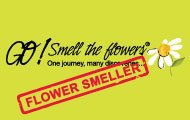Many people think of a journal as a diary. But journaling to heal ourselves isn't so much about leaving a record, as in a traditional diary ("Hot and sunny today. Beans for dinner again. Don't like beans."), but more about learning about ourselves and those around us by detailing and puzzling through the chain of events that makes up our lives.
Journaling with the intent to heal is more about process than it is about product. Yes, it is nice to have a record of where you've been, and reading over the things you've worked through can be helpful, if only to remind yourself of how far you've come. But my sense of it is that the journal serves its main purpose in the moment and then you move on to the next moment, hopefully having gained some insight to bring along with you.
The journal was where I first began to suspect that I had a problem with my moods. It was where I raged and screamed against my bipolar diagnosis. It was where I debated the pros and cons of going off of medication against medical advice. And it is where I continue to go every day of my healing journey.
I journal because it helps me make sense of my life. It gives me a lot in terms of self-knowledge and self-understanding...and if I can be honest with myself--not always easy, even in one's own private journal, to be truly honest--I get more insight out of my journal than I ever got out of therapy.
So...why journal? Because it can be cathartic--the journal is a place to safely release emotions and thoughts that may not be appropriate for those around you to bear the brunt of. Because it can help you gain insight--by examining your thoughts and feelings, sometimes it's possible to identify negative patterns that need shifting. Because it can give you a map of how far you've come, and help you figure out where you need to go next. Because it can help bring order to sometimes chaotic thoughts and emotions. Because it can be a place to brainstorm and problem solve. Because it is always there for you, and it is never judgmental. For all of these reasons and more, a journal can be a powerful tool for healing and a powerful adjunct to talk therapy.
In coming installments, I'll talk about how to start a journal, and about privacy issues. Then I'll present some of the different tools that can be used within the journal to gain insight. And if anyone's interested, I could list some specific journal exercises to get you started. Let me know.
Subscribe to:
Post Comments (Atom)




4 comments:
Hi Jazz,
I think journals are cool and they do help you. I am absolutely amazed at how far I have come when I read things I wrote years ago.
You wrote:
I get more insight out of my journal than I ever got out of therapy.
I would say it is a tie for me.
I look forward to seeing how you keep this private.
Dear Jazz,
So nicely said. As I mentioned yesterday, my earlier journal entries were ones of angst and anger.
But, my later ones were written with humor. I was so stunned by my treatment, so distressed by the things my doctors said, and I felt like I was in this "psychic nightmare," that the only way I could deal with it was to poke fun at it.
That, too, was helpful!
Susan
P.S. Of course, there were still plenty of angst-ridden entries as well.
Naturalgal--
I think therapy is one of those things where your mileage may vary...I have a very hard time opening up to anyone, and most of what I saw in therapy was that I was pretty much being guided to figure out stuff I could figure out by myself, or stuff I already knew deep down, and just hadn't admitted. Perhaps I just never found the right therapist, or the right type of therapy.
Susan--
I also have many angst-ridden entries! I think it's tremendously helpful to purge those emotions on paper so that my family don't have to deal with the fallout!
I still have the journals from when I was thirteen...I don't look at them often, as they are so awkward and painful, but the process of writing that stuff was so helpful to me, even back then, when I didn't really understand why it helped, I just knew that it did.
Post a Comment